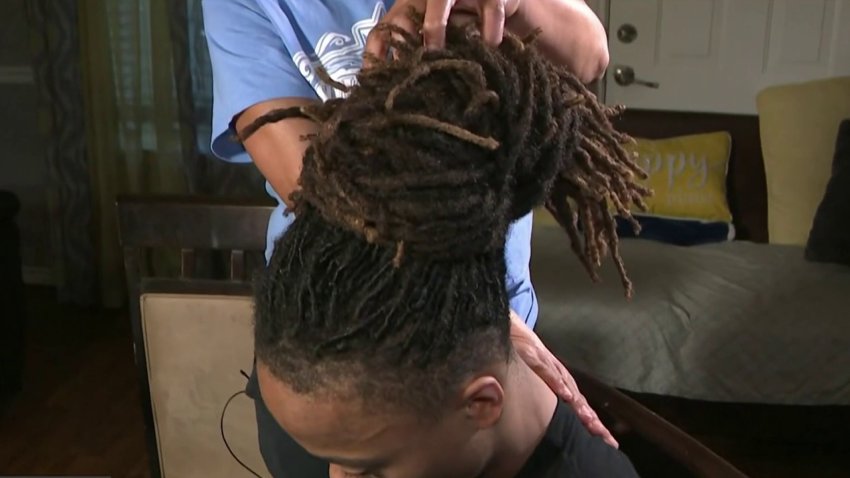Massachusetts House lawmakers passed a bill that would make sure no one faces punishment because of their hair.
A bill aimed at banning race-based discrimination targeting hair texture and hairstyles was unanimously approved Thursday by the Massachusetts House.
The legislation specifically prohibits discrimination based on "natural and protective hairstyles such as braids, locks, twists, Bantu knots and other formations."
Stream NBC10 Boston news for free, 24/7, wherever you are.
Supporters say Black women in particular have faced pressure in school and the workplace to alter their hair to conform to policies biased against natural hairstyles.
Democratic Rep. Chynah Tyler, a sponsor of the bill, said it’s important to help parents protect their children’s identity while at school — while also protecting those in the workplace who feel pressure to alter their looks.
Get updates on what's happening in Boston to your inbox with our News Headlines newsletter.
"Eighty percent of Black women are more likely to change their hair from its natural state to fit a workplace setting and changing to fit your workplace simply suppresses your creativity," Tyler said.

The 155-0 vote comes just two days after the Biden administration voiced its support for a similar effort at the federal level.
"The President believes that no person should be denied the ability to obtain a job, succeed in school or the workplace, secure housing, or otherwise exercise their rights based on a hair texture or hairstyle," the statement said.
The bill now heads to the Massachusetts Senate.
The bill has its roots in the case of a Massachusetts charter school that came under fire in 2017 for a policy of banning hair braid extensions.
The American Civil Liberties Union of Massachusetts filed a complaint against the Mystic Valley Regional Charter School for disciplining and suspending black and biracial students because their hairstyles violated the school’s dress policy.
The issue came to light when the parents of then-15-year-old Black girls — Deanna and Mya Cook — said their twin daughters were punished for wearing extensions, while white students hadn’t been punished for violations of hairstyle regulations, including coloring their hair.
School administrators said at the time that the ban on hair extensions had been designed to “foster a culture that emphasizes education rather than style, fashion or materialism.”
Massachusetts Attorney General Maura Healey stepped in, ordering the school to stop punishing students for wearing hairstyles that violate the school’s dress policy, saying policies banning hair extensions and other hairstyles appeared to violate racial discrimination laws.
The school removed the rule.
Rep. Steven Ultrino, a Democrat representing Malden and a sponsor of the bill, credited Deanna and Mya Cook for galvanizing support for the change.
"Many across Massachusetts, particularly Black women, find themselves in positions similar to Mya and Deanna," he said. "These practices that led to discrimination claim to support professionalism, but that begs the question: what does wearing your hair in braids have to do with being professional?"
In 2019, California became the first state to ban workplace and school discrimination against black people for wearing hairstyles such as braids, twists and locks.
More than a dozen states have since followed suit according advocates for the movement pushing states to adopt their own versions of the "CROWN Act," an acronym for “Create a Respectful and Open World for Natural Hair.”

